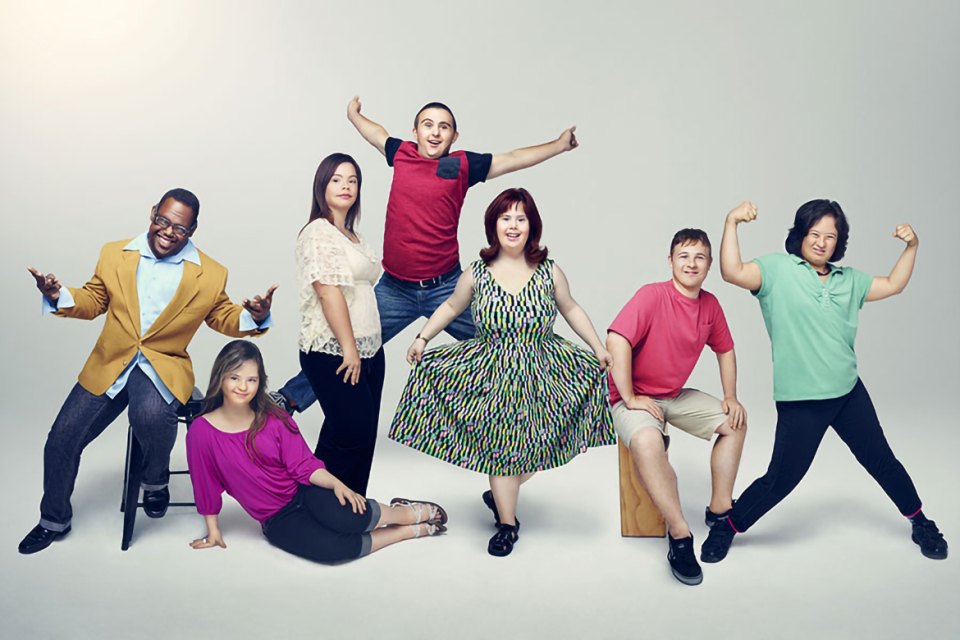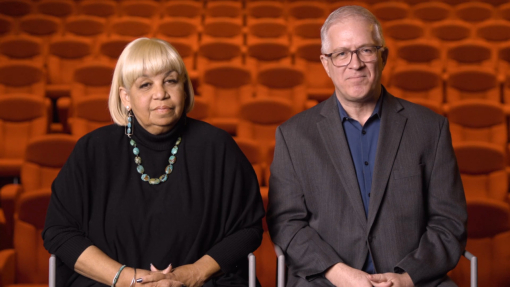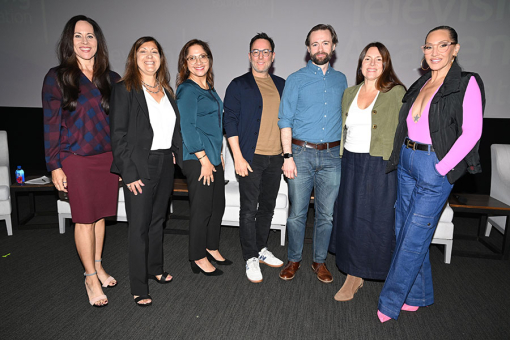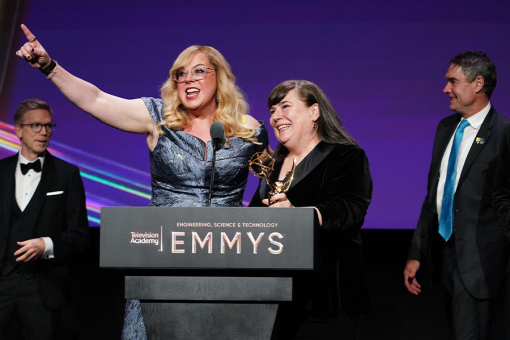In the opening scenes of the A&E six-part docuseries Born This Way, two young men, Steven and Sean, enter a restaurant. "Guys' night out," says Steven, now sitting with his pal at the bar. "Drinking beers."
"And cheers," says Sean, clinking his brew-filled glass with Steven's. Before long, the conversation turns to a favorite topic: "I need a girlfriend," Sean says. "Online dating is the worst," Steven responds, recounting one misadventure. "I wonder if there are any cute girls here."
There is one, in fact, also at the bar. The guys introduce themselves, only to find that the object of their potential affection is there with her boyfriend, and retreat in mild embarrassment.
Just a typical night in the Southern California dating scene … except that to all appearances, Steven and Sean are anything but typical.
They both have Down syndrome, a genetic disorder characterized by distinctive facial features and some intellectual disability, and the fact that they are just as interested in beers and "hot babes," as Sean says, as anyone else may come as a surprise to some viewers.
And that's precisely the point of this compelling series, which follows the lives of seven Southern California men and women who have Down syndrome: People with disabilities are still people, capable of maintaining romantic relationships and deep friendships, holding down jobs and striving toward goals, exhibiting strengths as well as weaknesses.
"Some people think people with disabilities never can make it big," Steven says. "How can I say this politely? Screw you." And, says Sean, "You can make your life anything you want."
The series is the inspiration and passion project of executive producer Jonathan Murray, who, with late partner Mary-Ellis Bunim, first turned television cameras on a group of young people with MTV's groundbreaking The Real World.
The other Born This Way cast members include Megan, a transplant from Colorado who comes to California with her overprotective mother to try to make it big in Hollywood; Rachel, who describes herself as boy-crazy; Elena, who laughs easily and enjoys Taiko drumming but is also given to dramatics; Cristina, who wants to marry her longtime boyfriend and buy a house with him; and John, an aspiring rap artist.
The cast's parents are also on hand, bringing further insights but also some moments as affecting as any their adult children provide. "Megan has taught me what's important in life," says her mother, Kris. "I had no idea I was capable of loving someone the way I love my daughter."
John's mother Joyce recounts how, when prenatal testing determined that her son had Down syndrome, she was urged to abort. And with stunning candor, Elena's mother, Japanese-born Hiromi, admits that because of her culture, "It took me 20 years to finally accept her as she is." Elena has internalized that maternal conflict: even the mention of Down syndrome sends her recoiling.
With the series focusing on ability rather than disability – Steven calls it, "Up syndrome, not Down syndrome," the cast's stories arc to satisfying and affecting conclusions.
Rachel, who has a deep fear of loud noises and crowds, is offered tickets to see and meet her idol, singer Adam Lambert, at a concert. "If I see him, I'll overcome my fears," she says – and she does, leaving her seat and moving all the way to the front of the stage, to dance with Lambert, grinning in happiness and triumph.
Cristina's boyfriend Angel gives her a "promise to love you" ring. And Elena, who lives in a group home and has a strong fear of change, allows herself to be taken to her parents' new home. "I'm a little shaky, but I'm trying to be a strong soldier," she says. Later she tells Megan, whose mission it is to inspire others, that Megan has inspired her; she has changed and now wants to spread her "butterfly wings" and "sparkle."
Megan and her castmates have also inspired others. Born This Way viewership increased 83 per cent from the series' premiere in December 2015 to its final episode, thanks in part to a social media awareness campaign conducted by more than 25 disability organizations; A&E Network's executive vice president and head of programming Elaine Frontain Bryant has noted that she received posts about the show even on her personal Facebook page.
On October 1, 2015, members of those organizations converged upon Washington, D.C. for a screening and panel discussion for members of Congress, held at the U.S. Capitol, to raise awareness of and advocate for people with disabilities.
Happily, Born This Way will have more opportunities to shine its light on those who have disabilities, and Down syndrome in particular. The show has been renewed for a second season, scheduled to begin airing during the summer.
For its powerful pronouncement that that people with disabilities can lead joyful, meaningful lives, the Television Academy is proud to name Born This Way the recipient of a 2016 Academy Honor.
Experience the touching moments with photo galleries and presentations/acceptance speeches from the Ninth Annual Television Academy Honors celebration.











